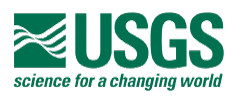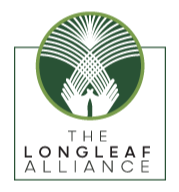Videos and Webinars
Below you can find conservation and working lands videos and webinars developed by our partners. These webinars are meant for a wide range of audiences — from technical experts and practitioners to landowners and the public.
Webinar: Restoration on Private Lands Pt. 2 – Implementation, Biological Control Options, and Restoring for Birds
Part two of this webinar series includes extended Q&A geared towards restoration on private lands.
Webinar: Restoration on Private Lands Pt. 1 – Restoration Planning, Weed Control, and Recommended Herbicides
This two-part webinar series includes extended Q&A geared towards restoration on private lands.
Webinar: Eastern Band of Cherokee Indians collaborative research and management of culturally important forest products
This webinar introduces a program on co-produced research and action to manage forests for culturally important plants within portions of traditional Cherokee homelands. Registration is required to viewnon-demand.
Taking Action to Resist, Accept, or Direct Change: How Wildlife Managers Can Thrive in an Uncertain Future (Webinar)
The mission of the USFWS is to conserve fish, wildlife and their habitats. But how can wildlife managers proceed when faced with biodiversity declines, extinction crises, and accelerating climate change where traditional approaches may no longer be effective?
Webinar: From data to decision: Pathways for salt marsh conservation and restoration
Learn about conservation and restoration activities led by the Partnership for the Delaware Estuary that highlight the interactive nature of monitoring, tool development, and interventions to inform goal-based site management.
SE FireMap Phase II: Developing the Decision Support System Webinar
A free and open webinar for practitioners and the public to learn about the Southeast (SE) FireMap and next steps in its development as an operational decision-support tool for resource managers. In this next phase, the SE FireMap aims to provide up-to-date information to support fire management and conservation efforts. Representatives from USDA-NRCS, Tall Timbers Research, and USGS lead the webinar.
10,000th Hellbender Released Into the Wild
HELLBENDER HISTORY -- the 10,000th hellbender was recently released into an Ozark river in an effort to support a declining population for the endangered species. The Saint Louis Zoo, MDC and U.S. Fish and Wildlife Service have partnered together for nearly 20 years during this effort. Learn more in this short video.
Incorporating the Benefits of Natural and Working Lands in Conservation Planning
Katie Warnell, Nicholas Institute for Environmental Policy Solutions at Duke University, gave this seminar March 22, 2022, as part of our Spring virtual science seminar series highlighting SE CASC funded projects supporting resource management actions across the Southeast.
WLFW Northern bobwhite, Grasslands, and Savannas Framework - Partners’ webinar 3/2/2022
On March 2, 2022 Bridgett Costanzo of NRCS's Working Lands for Wildlife and Jessica McGuire of QF presented on the WLFW framework for NOBO, grasslands and savannas. Ms. Costanzo presented on the content of the new framework document, the priority areas and conservation practice goals set by the 24 NRCS state offices, and responses received from the needs assessment survey. Ms. McGuire presented on staffing and monitoring plans associated with launching this framework.
Northern Bobwhites and Fire: A Perfect Match
Prescribed fire, bobwhite ecology, and local site conditions need to be aligned for optimal bobwhite population response. This course discusses the context of fire frequency, scale, and seasonality for bobwhite management and restoration.
Northern Bobwhite Grasslands and Savannas Framework
Presented by Bridgett Costanzo, NRCS Working Lands for Wildlife regional coordinator.
Geonode Part 3: GIS and Planning/ Energy Forcast Model
Part 3: GIS and Planning/ Energy Forcast Model
Biological Indicators of Soil Health
Participants in this webinar will learn about the biological importance related to soil health management. Advantages and limitations for a variety of biological soil health indicators will be discussed including how they are measured and may be interpreted.
Soil for Water
Learn more about NCAT’s Soil for Water project, working to capture and hold more water in the soil.
Living Soil Film
Our soils support 95 percent of all food production, and by 2060, our soils will be asked to give us as much food as we have consumed in the last 500 years. 60-minute documentary featuring innovative farmers and soil health experts from across the nation. The societal and environmental costs of soil loss and degradation in the U.S. are now estimated to be as high as $85 billion every single year. It’s time we changed everything we thought we knew about soil.
The Habitat Matrix - Stepping Down Bird Management From Landscape to Stand
Part 5 of a 12-part monthly lecture series, Forests for the Birds: Conserving America’s Forest Birds. July 20, 2021.
A Path Forward: Understanding and Restoring Degraded Forests A Working Lands for Wildlife Virtual Event
The impact of high-grading on forest wildlife in the Eastern deciduous forests.
Working With Farmers and Landowners in NY to Restore Bog Turtle Habitat Powerpoint Presentation
Approximately 15 minute presentation on conducting bog turtle habitat conservation through Farm Bill programs on private lands, and how to work with private landowners. Presented by Elizabeth Marks of NRCS, an Area Biologist in upstate NY who has extensive experience with this topic.


























